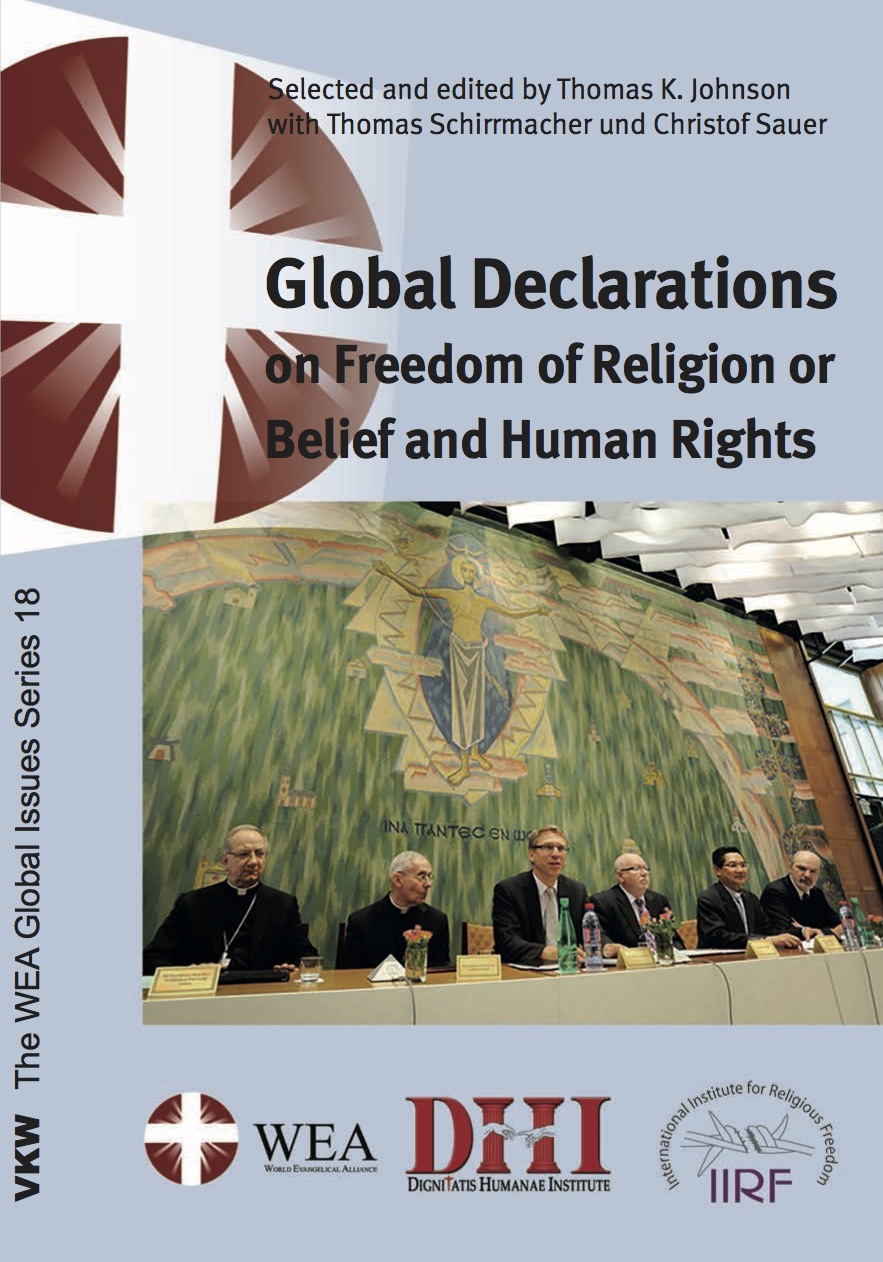As all reliable reports show, only a small percentage of the world’s population enjoys real freedom of religion or belief. Discrimination and persecution are commonplace, and even martyrdom is far too common. And the lack of protection for the basic human right of religious liberty is very frequently connected with other human rights abuses. Torture, genocide, and ethnic cleansing often accompany religious persecution, while violations of the freedoms of speech, travel, assembly, and the press are such normal parts of widespread religious persecution that they are sometimes no longer mentioned.
Our united concern to address the problems of discrimination, persecution, and martyrdom facing Christians should be organically tied to our proper Christian concern for human rights protection on the global level, including the right to freedom of religion for other faiths. For this reason, we are providing a selection of primary sources about human rights, persecution, and religious freedom which can be used in schools, universities, and other educational institutions. Whether you are a student or a journalist, a diplomat or a representative of your church or other faith community, understanding this set of texts will equip you to assess and respond to religious persecution and the related human rights abuses in a morally serious manner. We recommend that these primary sources be supplemented by philosophical, theological, and sociological studies that will provide helpful insight for understanding and application. For this purpose we recommend the International Journal for Religious Freedom, the Global Issues book series, and the Religious Freedom book series.
A book of readings similar to this was first compiled and printed for distribution at the Tirana (Albania) Consultation on Discrimination, Persecution and Martyrdom in November 2015, which was organised by the Global Christian Forum on behalf of the Vatican, the World Council of Churches, the Word Evangelical Alliance, the Pentecostal World Fellowship and other global and regional Christian bodies. It has been substantially expanded by adding more primary sources, including the message of the Tirana consultation. The sources selected appear in historical order, with only a little background information added. Many of the sources include a brief description of the historical situations in which the texts arose.
Thomas K. Johnson with Thomas Schirrmacher and Christof Sauer
